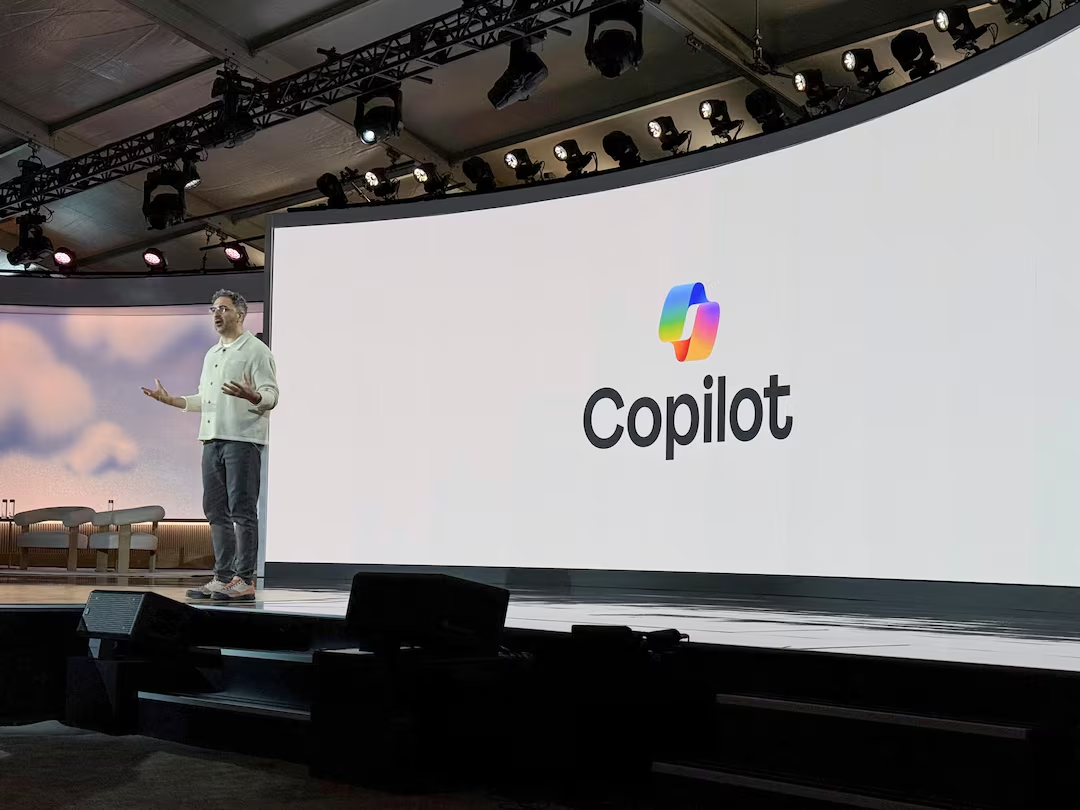 Image Source: Reuters
Image Source: Reuters
In a bold statement that reimagines the future of artificial intelligence, Microsoft's AI Chief has suggested that Copilot—the company’s flagship AI assistant—will not remain an impersonal cloud service, but will mature, adapt, and eventually "have a room that it lives in." This vision marks a significant shift in how we perceive and interact with AI, blurring the line between digital tools and familiar household companions.
The Vision: An AI That Grows and Has ‘Personal Space’
Mustafa Suleyman, CEO of Microsoft AI and a pioneer in the world of digital intelligence, recently framed Copilot’s ongoing development in uniquely human terms at a technology summit. “Copilot won’t stay forever young or static,” Suleyman remarked, “It will age, learn, and evolve with you. In fact, one day you’ll give it a room in your house—it’ll be part of the family.”
This statement, equal parts futuristic and relatable, sparked conversations across the global tech community. The idea: AI assistants like Copilot won’t just process commands—they’ll develop richer personalities, store shared memories, and anticipate needs through continuous learning, all while maintaining a physical or virtual “presence” in our daily lives.
The Evolution of Copilot: From Task Handler to Trusted Companion
Microsoft’s Copilot has already disrupted the productivity landscape, helping millions manage schedules, write content, code software, and even design graphics. But Suleyman's vision is to move beyond transactional assistance. The next evolution, he proposes, is for AI to become a contextual, lifelong partner—much like a helpful roommate or tireless personal aide.
Some tangible developments already hint at this trajectory:
-
Deeper Personalization: Copilot now remembers past projects, tailors responses to individual preferences, and integrates seamlessly across devices.
-
Learning Over Time: The AI learns user habits, anticipating needs such as reminders for family anniversaries or nuanced project updates at work.
-
Ambient Presence: Upcoming ‘Copilot Hub’ devices, exclusive to Microsoft’s home line, allow the AI to act as a home-based digital concierge—monitoring home security, managing appliances, and interacting organically via voice and displays.
Experts say that endowing AI with a “sense of space” (physical or virtual) will help users develop trust, familiarity, and even emotional connection to these systems—much as they might with a family pet or heirloom device.
Challenges and Implications
-
Privacy, Security, and Emotional Intelligence: The idea of inviting AI deeper into the fabric of our homes and lives also raises important ethical and design considerations:
-
Privacy First: An AI with long-term “memory” and presence requires robust data protection mechanisms. Microsoft has emphasized user control, encrypted local storage, and consent-driven customization.
-
Managing Attachment: Psychologists caution that emotional bonds with AI could blur boundaries. Design guidelines are being crafted to foster positive relationships while maintaining healthy user autonomy.
-
Lifelong Learning: Like any resident, a “home-based Copilot” must age gracefully—updating itself, unlearning biased behaviors, and adapting to changing roles as users grow, change jobs, or expand families.
Industry Reactions and the Road Ahead
While Copilot’s future “room” might start as a metaphor—a user’s dedicated digital dashboard or smart display—experts foresee the proliferation of AI-enabled smart spaces: offices, kitchens, even children’s study rooms. This signals a coming wave where AI is not just integrated, but truly inhabited in the spaces where we live and work.
Microsoft is not alone: Apple’s improvements to Siri, Google Assistant’s multi-modal learning, and Amazon’s Alexa-in-the-Home vision all point to a similar trend. However, Suleyman’s language—inviting Copilot in, letting it grow, and ultimately giving it a room—resonates as the most human-centric articulation yet of how deeply AI might weave into our lives.
Conclusion
Microsoft’s AI Chief’s vision of a Copilot that “ages” and “lives in a room” is more than a tech soundbite; it’s a provocative glimpse at tomorrow’s AI—one that is trustworthy, enduring, and at home in our world. As this future approaches, the focus must remain on ensuring these digital companions grow with us—securely, ethically, and helpfully.
Sources: CNBC, The Verge, TechCrunch, Wired, Microsoft Official Blog, New York Times
Advertisement
Advertisement



